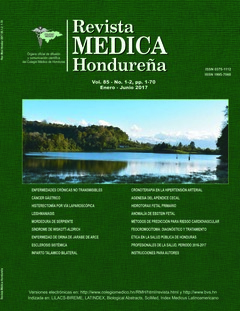Wiskott - Aldrich syndrome. Therapeutic and Diagnosis Difficulties in a patient with primary immunodeficiency
Keywords:
Immunodeficiency, Eczema, thrombocytopenia, bone marrow transplantAbstract
Introduction. The primary immunodeficiencies are a group of genetic diseases involving disorders associated with immune response. The sub-diagnosis of these leads to avoidable delay in the treatment; among these disorders exists the Wiskott - Aldrich syndrome; It is a rare, recessive, linked to X chromosome disorder characterized by thrombocytopenia, eczema and immunodeficiency where curative treatment is bone marrow transplantation. Case report: 10 year old patient, with a history of multiple hospitalizations caused by major infectious diseases: recurrent pneumonia, meningitis, diarrhea, generalized rash, thrombocytopenia (9,000 mm³). After multiple studies, the diagnosis of syndrome of Wiskott - Aldrich is confirmed by Immunogenetics (WAS gene mutation) and by international medical collaboration, the bone marrow transplantation with subsequent resolution of its disease is effective. DISCUSSION: Primary immunodeficiencies are most common pathologies than believed (prevalence of up to 1/1200), the evidence of appearance and his clinical relevance should be taken into consideration. In this Wiskot-Aldrich Syndrome case, where the definitive diagnosis is immunogenic (currently the country does not have it), as well as immuno-oncological treatment, the patient could survive and improve his life quality, through multinational investigative and therapeutic support. There are multicentric collaborations as the consortium of primary immunodeficiencies treatment, which are intended to cooperate actively in diagnosing and treating these cases, safeguarding the lives of these patients and helping to understand these rare diseases.
Downloads
448




